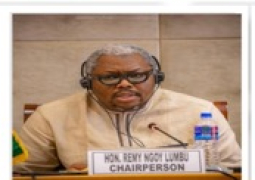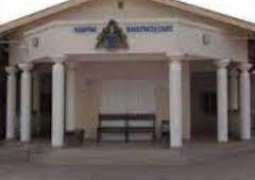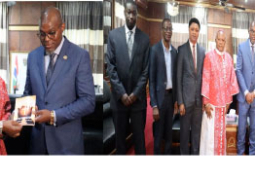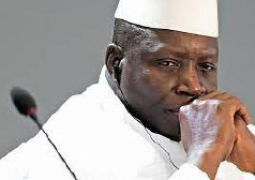In November 1951, the Gambia Democratic Party of late Rev. J.C. Faye, amongst others contested elections for three seats at the Legislative Council for Bathurst and Kombo, narrated Hassoum Ceesay, historian and author in an interview with this reporter.
As political parties present their nomination files at the IEC this week, Hassoum Ceesay, said “the 1951 elections came as a result of constitutional developments starting from 1947 when the elective element was introduced in a new constitution.” He disclosed that in the 1947 elections, Honourable E.F. Small became the First Elected Member of the Legislative Council.
According to him, what is really unique about the 1951election was that it was held on a political party basis. “In 1947 elections, there were no registered political parties; all the candidates stood as independent; at that time the British colonial rulers still maintained their ban on the formation registration of political parties.”
But in 1951 elections, he said, “we had Edward Francis Small again who stood for the Gambia National League, Rev J.C. Faye for the Gambia Democratic Party; John Findin Dailey for the Common People’s Party; and of course other independent candidates like Pierre Sarr Njie, James Francis Senegal, and Henry Madi. And it was very interesting because it was the first election under a multiparty system where Gambians were given the opportunity to select and elect using political party platform.
Hassoum explained further that at the 1951 elections, ‘Rev J.C. Faye, leader of The Gambia Democratic Party, Garba Jahumpa and Henry Madi, independent, were elected’. The noted historian added that more political parties were created in the aftermath of the 1951 elections such as the Gambia Muslim Congress; United Party (UP) of P.S Njie; The Gambia National Party of Kebba Wally Foon and The Gambia Peoples Party of Lawyer George St. Claire Joof and in 1959, the PPP was formed. “So in short period of eight years, five new parties emerged. Our Founding Fathers at the time saw the need for registering parties to maximise political mobilisation to fight for independence,” he added.
He went further that “so as we prepare for the December elections, we should remember our illustrious history of 70 years experience in multiparty elections, during which period Gambians have so far gone through multiparty elections for 20 times since 1951. This is a record in Africa, which we Gambians should be proud of. In fact, The Gambian multiparty democratic record is unique in Africa and it should be a source of pride to every Gambian. Gambians were voting in multiparty elections before the people of Portugal, Spain and other European countries did so,” Mr. Ceesay disclosed.
He expressed that this beautiful democratic experience imposes on Gambians the responsibility to continue to nurture, protect and improve on their enviable democratic tradition.
Asked on the trend of political party alliances in the Gambia since 1951, he answered that “the idea of political parties coming together to form electoral alliances dated back to 1955 municipal election in Bathurst when the United Party worked with the Gambia Muslim Congress in certain wards in Bathurst to stop Democratic Party from winning those wards. In 1960 general election also, there was alliance between the Gambia Muslim Congress and The Gambia Democratic Party called Democratic Congress Alliance to contest the 1960 elections to prevent the United Party from dominating Bathurst. At that time Bathurst was dominated by Pierre Njie’s U.P.”
Subsequently, “in 1962 elections the PPP went into alliance with Democratic Congress Alliance (DCA) to frustrate the United Party, particularly in their stronghold in Bathurst. Thanks to this alliance, the PPP defeated the UP. Also in the 1970s National Convention Party formed alliance with the United Party of Pierre Njie against the ruling PPP. In 2016, it was an alliance which defeated the APRC regime. Historian Ceesay acknowledged that party alliances “have been a constant feature, a healthy characteristic for The Gambian multiparty experience.”
He concluded by saying that The Gambia multiparty democracy is matured, the political space is getting freer and also Gambians are getting increasingly interested in the political affairs of their country. “The multiplication of political formations and people interested in political office is a positive sign for the development of our multiparty system, because multiplication of parties helps to entrench our democratic spirit and tradition,” Mr Hassoum Ceesay observed.





